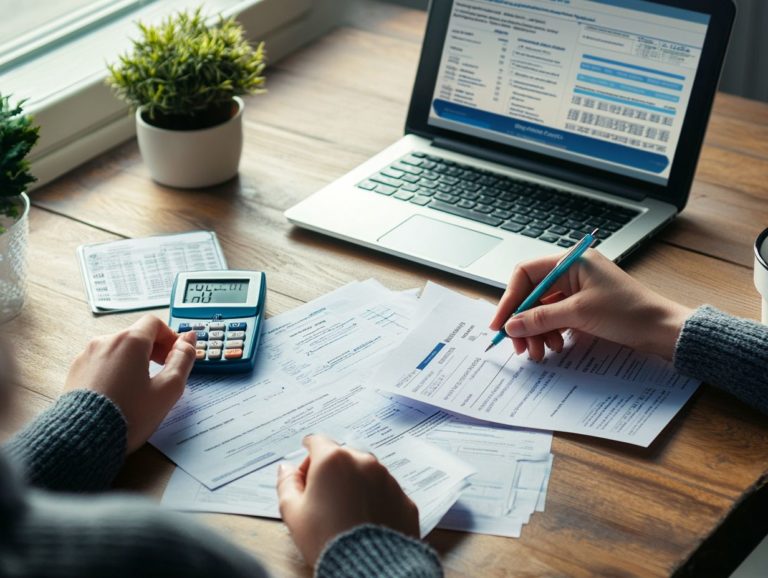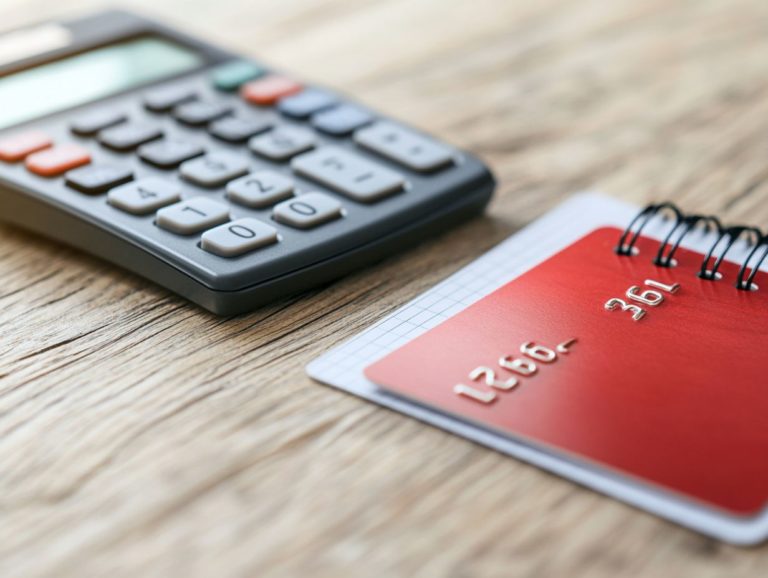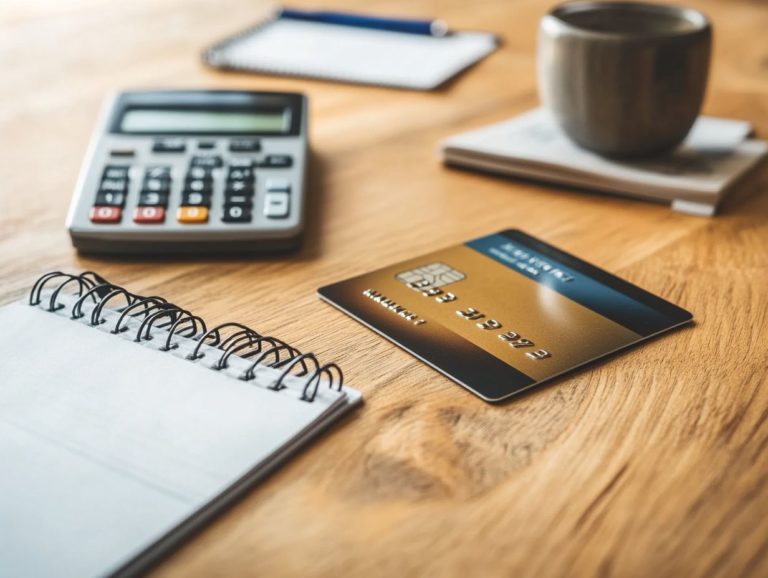How to Report a Lost Credit Card?
Misplacing your credit card can certainly be a stressful ordeal. However, understanding how to respond swiftly can significantly mitigate potential fallout.
This guide outlines the crucial steps you should take when reporting a lost credit card. This includes contacting your credit card company and monitoring for unauthorized charges.
This guide also covers preventive measures to keep your card secure and what to do if it remains missing. Equip yourself with the knowledge necessary to protect your finances effectively.
Contents
Key Takeaways:

- It’s important to report a lost credit card immediately to prevent unauthorized charges and protect your financial information.
- Contact your credit card company, freeze your account, and check for unauthorized charges when reporting a lost credit card.
- To prevent credit card loss, keep your card safe and regularly monitor your account for suspicious activity. If your card is not found, take immediate action and be prepared for potential outcomes.
Reporting a Lost Credit Card
Reporting a lost credit card is crucial due to the significant risks of identity theft and unauthorized charges. If you find yourself in this predicament, your first course of action is to promptly reach out to your card issuer or financial institution for guidance on what to do if your credit card is lost.
Acting quickly can greatly reduce the likelihood of fraudulent transactions and safeguard your payment information. Familiarizing yourself with the reporting process can enable you to navigate the necessary steps efficiently. This paves the way for a swift resolution and potentially securing an emergency replacement card if required.
Why It’s Important to Report a Lost Credit Card
Reporting a lost credit card is crucial for preventing identity theft and unauthorized charges. This ultimately protects your financial well-being and credit profile.
The importance of acting swiftly cannot be overstated. Any delays can lead to serious consequences, including unauthorized purchases that may go unnoticed on your credit report. If someone takes advantage of a lost card before you’ve reported it, the financial repercussions could escalate quickly, impacting not only your credit score but your overall financial stability as well.
Federal laws, like the Fair Credit Billing Act, offer essential consumer protections. These limit your liability for fraudulent charges if you report them promptly. Failing to act quickly could jeopardize these protections, leaving you vulnerable to potential fraud and enduring negative effects on your credit history.
Steps to Take When Reporting a Lost Credit Card
When you discover that your credit card is lost or may have been stolen, it s crucial to act swiftly to mitigate the risks of unauthorized transactions and secure a replacement card.
Start by promptly calling your issuer to report the loss. You can usually find the customer care number on their website or mobile app. Have your account number on hand for a seamless process, and carefully follow their instructions to safeguard yourself against potential identity theft.
1. Contact Your Credit Card Company
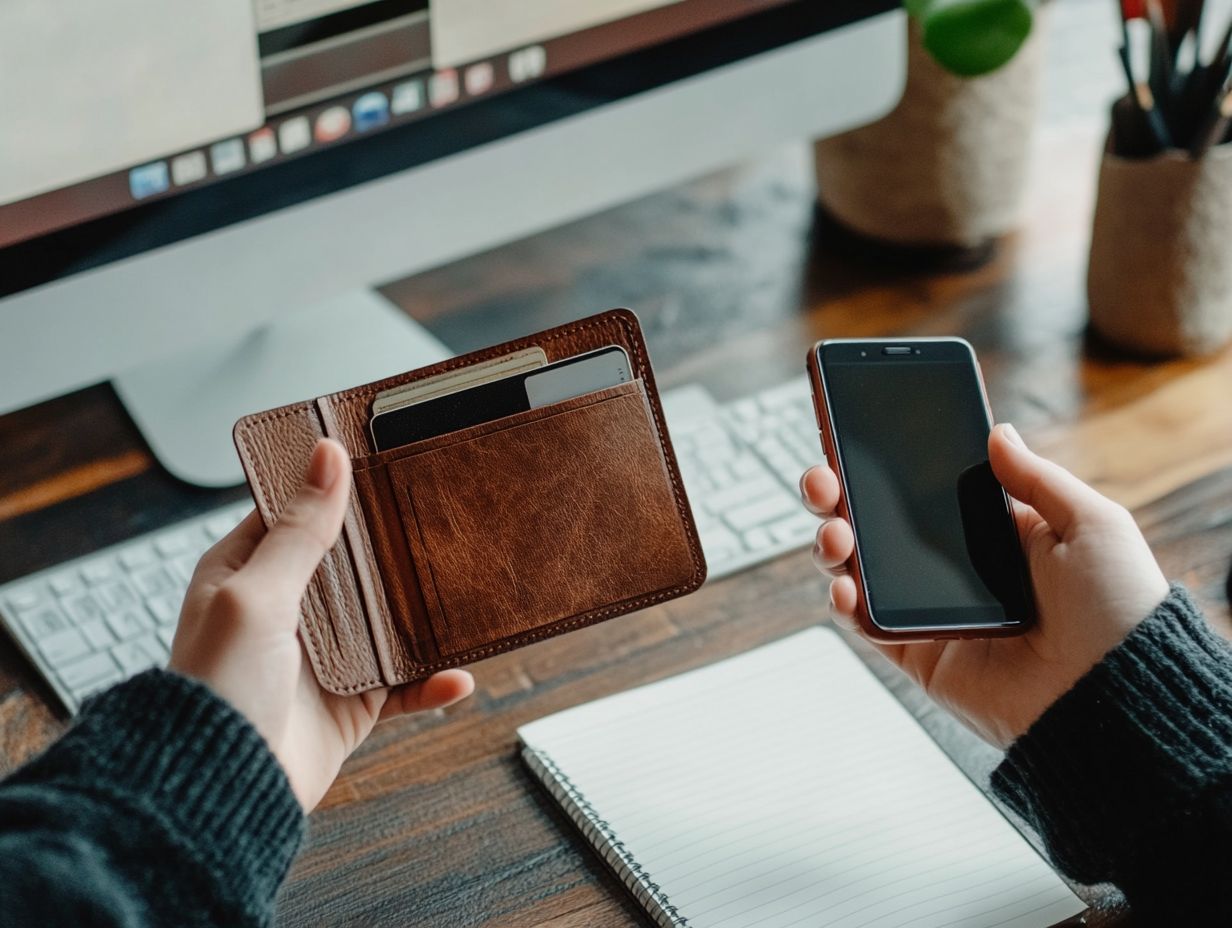
The very first thing you need to do when your credit card goes missing is to contact your card issuer. This is absolutely essential for protecting your account from unauthorized transactions.
Reaching out to the card issuer is crucial; they can quickly suspend your account and arrange for a replacement card. When you make the call, be ready to provide some identifying details, like your full name, the last four digits of your card, and any recent transactions. This information helps them verify your identity effectively.
You can expect a smooth process where a customer care representative will guide you through the necessary steps. To ensure you re dialing a legitimate number, always check the back of your card or visit the issuer s official website. This simple precaution significantly reduces the risk of falling prey to scams.
Preventative Measures to Protect Your Credit Card
To sidestep the hassle and potential financial pitfalls that come with lost or stolen credit cards, it s crucial to implement preventative measures for effective fraud prevention and security.
Leveraging tools like credit monitoring services can provide timely alerts for any suspicious activities. Placing a security freeze on your accounts provides an extra layer of protection against identity theft.
Embracing the use of a mobile wallet can further enhance your security by securely storing your payment information, significantly reducing the risk of losing your physical card.
2. Freeze Your Account
Freezing your account immediately after reporting a lost credit card is a smart move that helps safeguard against unauthorized charges while you await further instructions.
This essential precaution has evolved remarkably with the advancements in digital banking. Many financial institutions now grant you the convenience of freezing your account directly through secure online platforms.
By simply logging into your account, you can activate this feature in a matter of moments, providing you with much-needed peace of mind during a stressful period.
Keeping an eye on any unusual activity is crucial for protecting your personal finances. This enables you to stay one step ahead of potential fraud and unauthorized transactions.
After you report your lost credit card, it s essential to examine your account for any unauthorized charges, as these may signal potential identity theft.
Thoroughly reviewing recent transactions is a critical step in protecting your finances; even minor discrepancies can hint at more significant issues. Take the time to scrutinize each item on your statement for anything that appears unfamiliar, or suspicious.
Setting up fraud alerts can add an extra layer of protection, notifying you whenever unusual activity occurs.
It s also vital to keep your payment information secure by using strong passwords and being cautious about where and how you share your financial details. These practices will not only help you identify potential fraud quickly but also enhance your overall financial security.
Tips for Keeping Your Credit Card Safe
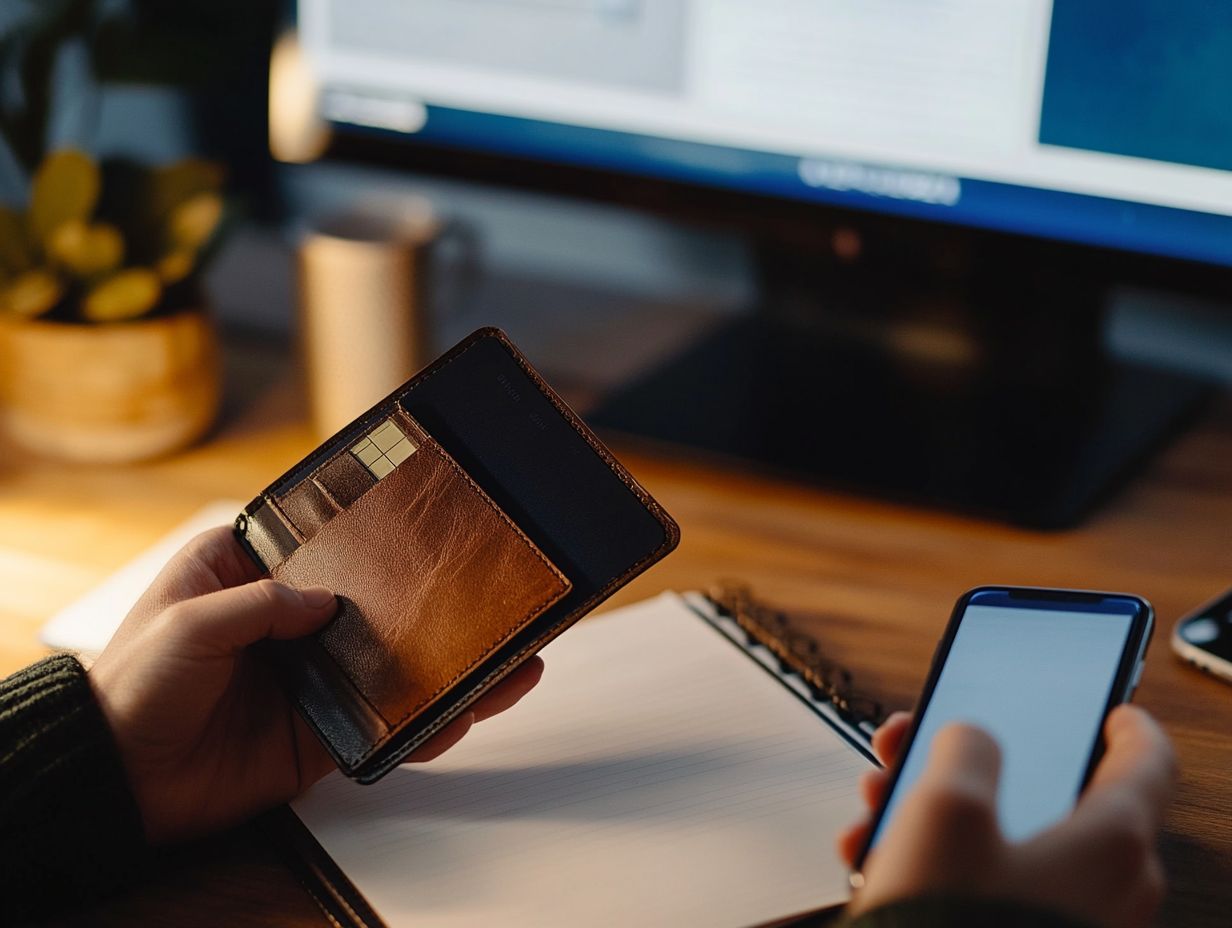
Keeping your credit card safe is all about smart strategies and being alert to thwart identity theft and ensure robust fraud protection.
To effectively safeguard your financial information, it s crucial to store your cards in secure locations think locked drawers or personal safes rather than leaving them in easily accessible spots.
Avoid making manual payments in unsecured settings, like public Wi-Fi networks; this simple step can greatly diminish the risk of interception.
Regularly updating your security information, including passwords and account settings, is key to bolstering your defenses against unauthorized access.
Embracing digital banking tools can offer you added layers of security, enabling real-time transaction monitoring and instant alerts for any suspicious activity.
What to Do if Your Credit Card is Not Found
If you ve explored every possible avenue and still can t locate your lost credit card, you must act quickly to protect your finances and reduce the risk of identity theft!
Begin by reaching out to your card issuer to request a replacement card. This typically includes a new account number and upgraded fraud protection features, providing you with an added layer of security.
Furthermore, if you suspect your card has been stolen, consider filing a police report. This not only aids in potential investigations but also fortifies your financial interests against any untoward consequences.
Next Steps and Potential Outcomes
After securing a replacement card, it’s important to stay alert by monitoring your statements and setting up a fraud alert to protect against identity theft. With the new card in hand, begin updating any automatic payments linked to the old card. This ensures your subscriptions and recurring charges continue seamlessly.
If you have any questions or concerns, act now! Contact your card issuer for help. They can provide valuable insights on managing your account and keeping your information secure.
Ongoing monitoring for unauthorized transactions is very important. By being proactive, you can catch fraudulent activity early and safeguard your finances.
Frequently Asked Questions
1. What should I do if I have lost my credit card?
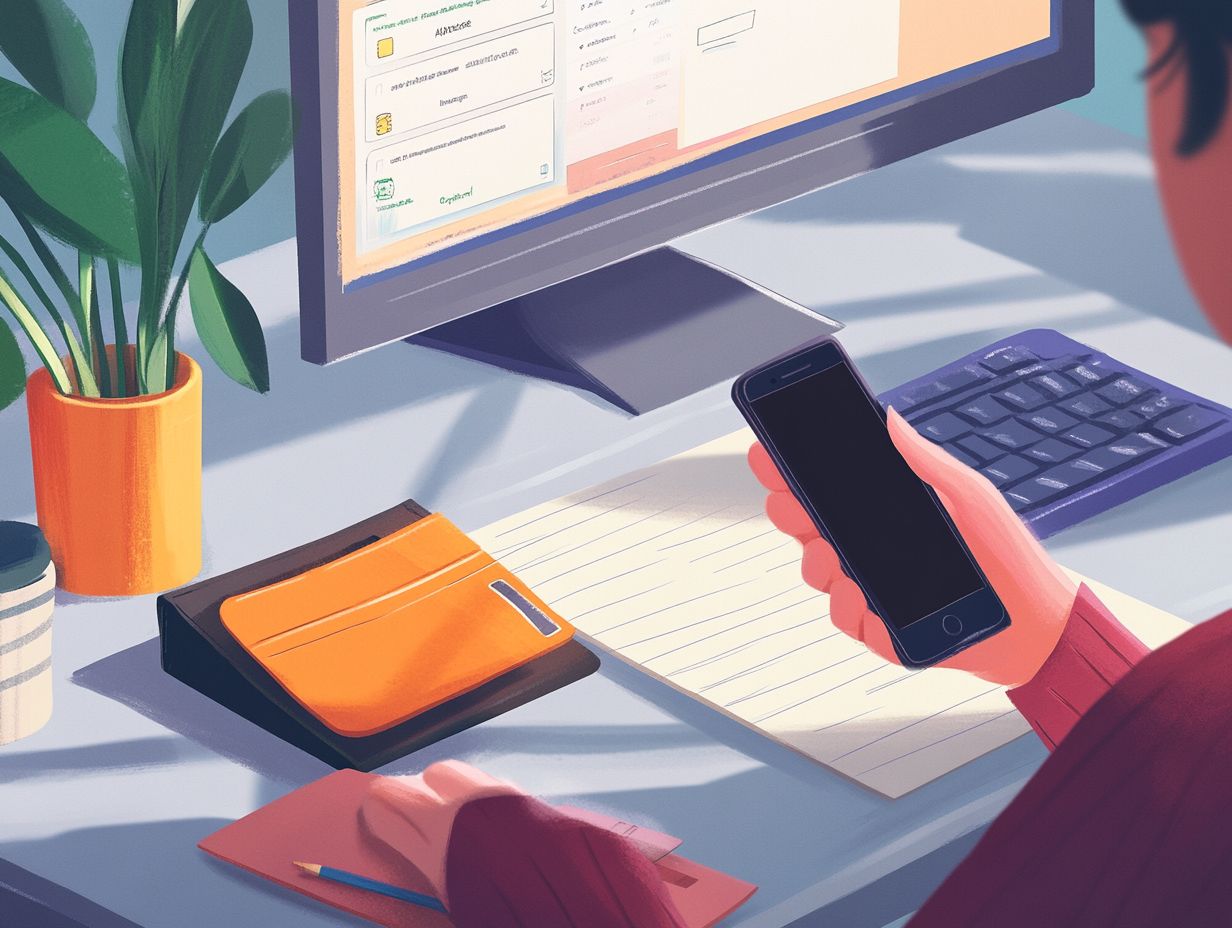
If you have lost your credit card, report it immediately to your credit card issuer to prevent unauthorized charges.
2. How do I report a lost credit card?
You can report a lost credit card by calling the customer service number on the back of your card or through your credit card issuer’s website or mobile app.
3. What information do I need to provide when reporting a lost credit card?
Typically, you will need to provide your name, credit card number, and the date you noticed the card was missing. Some issuers may also require your address and other personal information for verification.
4. Will I be liable for any unauthorized charges if I report my lost credit card?
If you report your lost credit card promptly, you will usually not be held liable for unauthorized charges. Check with your card issuer for their specific policies.
5. What should I do if I find my lost credit card after I have reported it?
If you find your lost credit card after reporting it, contact your card issuer to inform them. They may reactivate your card or issue you a new one.
6. Can I track my lost credit card after I have reported it?
Some credit card issuers offer tracking for your lost card through their website or mobile app, helping you see if any unauthorized charges have been made.
Take action to safeguard your account today, and bookmark this page for future reference!



